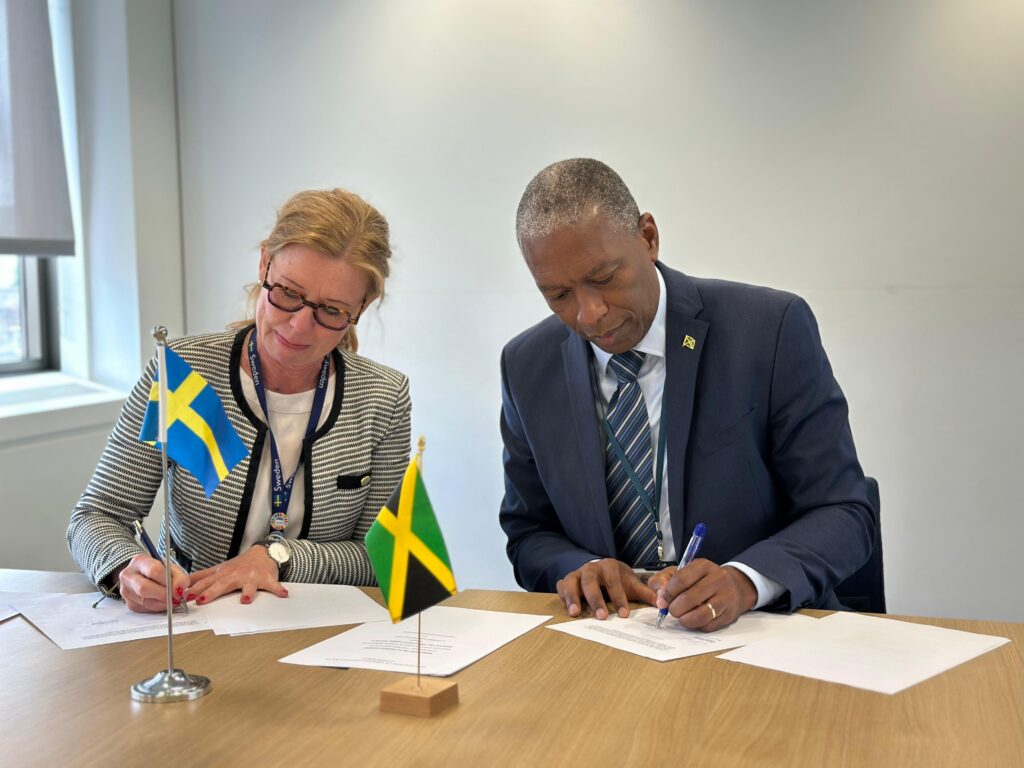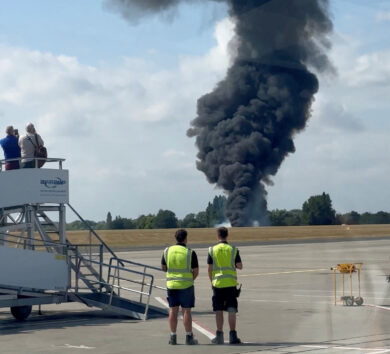

The governments of Jamaica and Sweden have signed a reciprocal recognition agreement that allows Jamaican seafarers to work on Swedish ships and vice versa.
The agreement was signed on July 7 at the London-based headquarters of the International Maritime Organisation (IMO) by Bertrand Smith, director-general of the Maritime Authority of Jamaica (MAJ), and deputy maritime director of the Swedish Maritime Administration, Pernilla Wallin.
Smith explained that the signing closely follows similar agreements recently signed with Canada, the Netherlands and Norway.
“The signing of the reciprocal recognition agreement under the International Convention on Standards of Training, Certification and Watchkeeping (STCW) is another demonstration of Jamaica’s growth as a shipping centre, providing competent seafarers to the global shipping industry,” he said.
Smith pointed out that Jamaican officers who hold Certificates of Competency issued by the MAJ are trained at the highest standards under the STCW, which is the IMO Convention governing training and certification, and are in high demand internationally.
“With the signing of the agreement, a number of Jamaicans will be employed on bulk carriers under the Swedish flag,” the MAJ director-general said.
Jamaica is a party to the STCW Convention, a set of international regulations developed by the IMO to establish minimum standards for the training, certification, and watchkeeping of seafarers on seagoing vessels.

These standards are designed to ensure that seafarers possess the requisite knowledge, skills, and competence to perform their duties safely and efficiently.
Smith explained that under the STCW Convention, the MAJ is responsible for ensuring that the Caribbean Maritime University (CMU) trains seafarers in accordance with the relevant international standards.
“On completion, the MAJ examines [the candidates] and issues Certificates of Competency to seafarers,” he noted.
“Jamaican seafarers are, however, unable to be employed on foreign-flag vessels unless the flag state recognises the Jamaican certificates. This recognition is achieved by entering into a reciprocal recognition agreement,” Smith indicated.







Comments